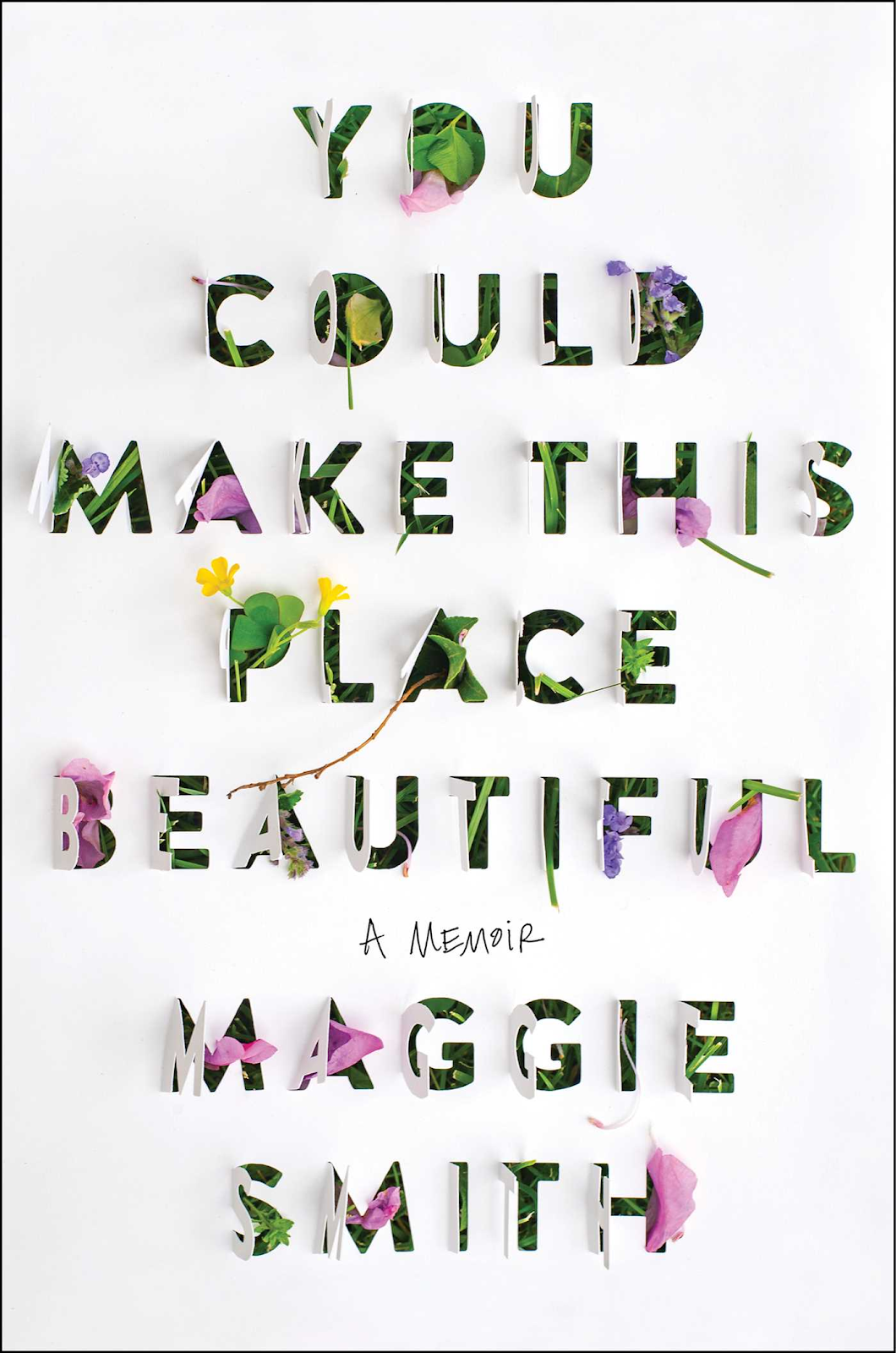You Could Make This Place Beautiful by Maggie Smith
“Life, like a poem, is a series of choices.”
In her memoir You Could Make This Place Beautiful, poet Maggie Smith explores the disintegration of her marriage and her renewed commitment to herself in lyrical vignettes that shine, hard and clear as jewels. The book begins with one woman’s personal, particular heartbreak, but its circles widen into a reckoning with contemporary womanhood, traditional gender roles, and the power dynamics that persist even in many progressive homes. With the spirit of self-inquiry and empathy she’s known for, Smith interweaves snapshots of a life with meditations on secrets, anger, forgiveness, and narrative itself. The power of these pieces is cumulative: page after page, they build into a larger interrogation of family, work, and patriarchy.
You Could Make This Place Beautiful, like the work of Deborah Levy, Rachel Cusk, and Gina Frangello, is an unflinching look at what it means to live and write our own lives. It is a story about a mother’s fierce and constant love for her children, and a woman’s love and regard for herself. Above all, this memoir is an argument for possibility. With a poet’s attention to language and an innovative approach to the genre, Smith reveals how, in the aftermath of loss, we can discover our power and make something new. Something beautiful.
Review: In this memoir, poet Maggie Smith explores the collapse of her marriage and the life she built and lost with her husband. Composed in a series of short and lyrical vignettes, she explores a variety of topics including fidelity, motherhood, traditional gender roles, writing as a career, and more that make this more than just a rumination on her own marriage but a great contemplation on womanhood and family in general.
Like many, I was deeply moved by Maggie Smith's viral poem, "Good Bones." She brings the same lyrical writing and introspective searching that that poem features to this work. This memoir is truly a series of connected essays, but they do play off of and on each other over and over in intricate ways to create a cohesive piece. I liked her inclusion of quotes and her reflection on writing and the value of her work and career.
On the other hand, despite being a relatively short work, this book dragged for me. Much of it just felt like digs at her spouse and the need to let the world know how poorly he loved and supported her. Of course, she references very valid reasons why her husband was not a great one and this is her story to tell, but I couldn't help but feel sorry for her children, to have the ugliest parts of their parents' story on full display for the world to see. Not to mention how angry this probably made her ex-husband. She continually references there is much she isn't saying, as if we should commend her for her great restraint. But she certainly shares plenty.
I imagine that perhaps I am just not the right target audience for this work. I have never been made to feel like my work is small by my spouse. Never been cheated on or left by my husband of many years. I think that other wronged women would identify with and appreciate this book far more than I can. I also wonder if I would have enjoyed it more and found the language more moving if I had read a physical copy rather than listening to it on audio.
Stars: 3



Comments
Post a Comment